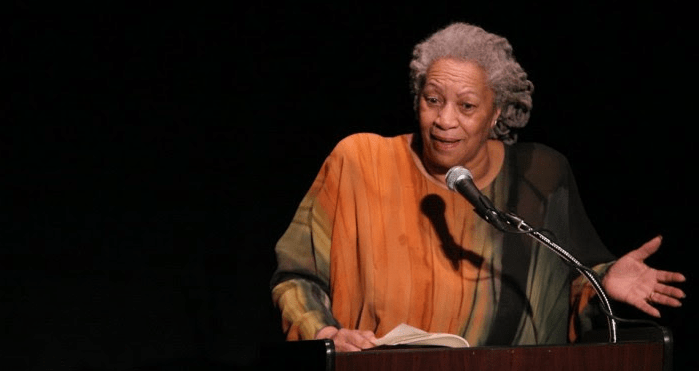Cloud Nein: Saving Fiction from Truth Stranger Than Fiction

Lisa Van Dusen/For the Hill Times
Sept. 12, 2019
As cyberconnection obliterates boundaries, some speculate that literature will be rendered obsolete.
There’s a special sub-genre of technology writing that I like to think of as the Ativan of the new new journalism—the stuff that soothingly portrays boundary violating, privacy-invading, human rights abrogating technological innovation as cool and fun as opposed to creepy and horrifying.
In the always-excellent FT Weekend last weekend, there was a piece headlined The Imitation Game. It weaves an intricate argument—blithely conscripting Alan Turing, new AI fiction by Ian McEwan and Jeanette Winterson, and the “almost magical” way “Alexa responds to our conversations” among other spangle—to support the thesis that once we’re all wired up to each other’s brains, literature will be obsolete.
Not that literature will be banned by a technology-empowered surveillance state per the classic authoritarian censorship gambit that would fit with the epidemic of all the other classic authoritarian gambits we’re witnessing, but that it will no longer be necessary because, “What need would we have of novels if we could know each other’s minds by simply plugging into the cloud?”
At a time when the aphorism “knowledge is power” has been overtaken on a radical scale by the more extractive, less romantic “information is power,” it only follows that novels would begin to be processed as intelligence-gathering mechanisms. Who among us hasn’t read The Great Gatsby as a Yelp review for the Valley of Ashes? Or Love in the Time of Cholera as a symptom checker?
The most obvious kink in this thesis is the Heisenberg principle of observation. If you know people are eavesdropping on your brain, your thoughts will adapt to that observation, eventually making the entire exercise pointless because what had been private thoughts about Sartre’s theory of engagement or whether Easy Cheese is really cheese will be as public as all our other thoughts. Then again, if neuro-embedded AI is somehow installed covertly, it won’t be a perpetual noggin orgy, it’ll be a monstrous, Orwellian clusterf**k. And, if people have their brains hooked up to the cloud without their consent but are actually aware of it, the Heisenberg principle of go f**k yourself will kick in whereby the target turns their thought feed into an endless catalogue of 70s sitcom theme songs and epic dirty limericks about the perpetrators.
We don’t read great fiction to know the raw, unrefined blather of a writer’s mind. We don’t read Beloved to know what Toni Morrison thought of slavery or racism—she articulated those thoughts eloquently in interviews, speeches, and essays over decades. We read it for the wonder of processing human experience, ideas, and insights through beautiful writing. How many times a day Toni Morrison laughed, sneezed, or ate a pastrami sandwich while she was thinking about Song of Solomon is not only irrelevant, it’s none of our business. (For readers 30 and under, “none of your business” was something people said to strangers who demanded their name before the dawn of Starbuckistan and before your entire life was commodified by data miners and social engineers on Facebook.) If we’d “known her mind” by “plugging into the cloud” while she was alive, it would not necessarily have given us unfettered access to the sentence “The presence of evil was something to be first recognized, then dealt with, survived, outwitted, triumphed over,” from Sula. She had to write that sentence to know what it would be. And she had to write it to get paid for her ability to do so. Journalism isn’t the only source of truth that needs to be devalued in order for evil to triumph.
You’d think the best newspaper in, of all places, the country that produced Shakespeare, Jane Austen, Zadie Smith, and both Amises would know that.
Once again, I blame Brexit.
Lisa Van Dusen is deputy publisher and associate editor of Policy Magazine and a columnist for The Hill Times. She was Washington bureau chief for Sun Media, a writer for Peter Jennings at ABC News, and an editor at AP in New York and UPI in Washington.
